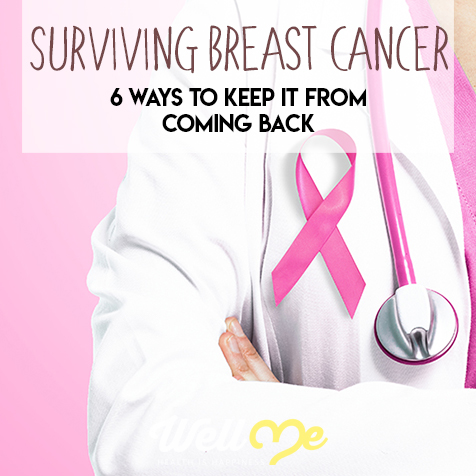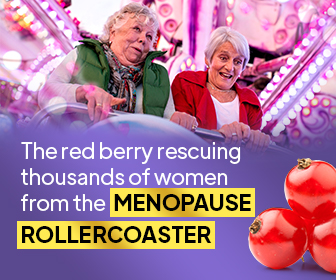Breast cancer is a terrible affliction that affects millions of Americans every year. When you’re in recovery, it is important to take control of the variables and factors that lead to tumors and remission – you are in control of the risks in your life. You CAN make a difference and prevent the return of further complications, if you live well and prioritize your health and wellbeing.
This article will provide you with seven changes you can make to your lifestyle that will protect you from cancer, repair cellular damage, and put you in the best position to remain as healthy as possible for as long as possible. Try these seven methods for improving your cancer recovery and preventing future episodes.
Dietary Foundations
We often discuss how diet forms the foundation for solving a multitude of health problems, and this is no different for breast cancer. Cancer is affected by the foods you put into your body and the way you use them through exercise and lifestyle – you are what you eat and your diet will define your recovery and health.
Some foods have the ability to reduce the overall burden placed on your health by breast cancer and reduce the likelihood of it developing in future, whereas other foods can increase your risk and contribute to the prevalence of breast cancer and other forms of dangerous tumors. Making the right dietary changes plays a large role in recovering from breast cancer and keeping it at bay.
First Change: Bodyweight
Your diet is the main factor in your bodyweight: you can perform exercise to adjust your bodyweight and composition slightly, but diet is where the majority of the equation occurs. If you eat more calories than you use, you will develop excessive stores of bodyfat (unless you are performing high-intensity or high-volume resistance training, which converts excess calories to muscle tissue).
Reducing your bodyweight, especially bodyfat, is one of the easiest ways to reduce your overall cancer risk and the chances of further breast cancer. Weight and calories are not the only dietary concerns, but they are the most notable and high-risk, with 66% of Americans being overweight or obese already.
Spend some time focusing on a low-calorie, nutrient-dense diet to reduce bodyweight and protect your body from cancer.
Second Change: Calcium
Calcium is an essential mineral in the diet, playing numerous roles in overall health and optimal bodily function. You’ve probably heard of calcium through its importance in bone health and combatting age-related diseases like osteoarthritis and osteoporosis. However, calcium also plays a key role in the maintenance and rejuvenation of mammary tissue – the glands found in the breasts that are subject to the development of breast cancer. Calcium deficiency is relatively common in the United States and a dietary increase in high-quality calcium sources such as spinach and kale can improve your overall dietary quality and protect your breast tissue.
Third Change: Antioxidants
Antioxidants have attracted a lot of attention as a key player in the development of a healthy diet. These compounds are found in everything from berries to chili peppers and they provide an amazing array of benefits. Vitamin E, for example, is prized for its effectiveness as an anti-inflammatory and antioxidant compound.
Antioxidants work by reducing the effect of metabolic waste products called free radicals on the DNA in your cells. Free radicals cause oxidative damage to the cells which can result in mutations and tumors – serious risks for those who have already experienced breast cancer. Increasing your intake of potent antioxidants is a great way to improve your resilience to oxidative damage and prevent future tumors from developing.
Many foods are high in antioxidants and, though antioxidants are not created equal and have different effects, a higher concentration of antioxidants in the body will generally mean a lower risk of oxidative damage and cellular mutation. A shortlist of amazing, antioxidant-dense foods follows:
- Dark berries (like blueberries and blackberries)
- Dark leafy greens (like spinach, chard, and collards)
- Cayenne peppers
- Red kidney beans
- Black beans
- Green tea (or matcha)
- Whole grains (like oats)
The safest, easiest way to ensure you’re getting enough dietary antioxidants is to increase the amount of fruit and vegetables in your diet. Plant-based products, in their fresh and unrefined forms, tend to be packed full of potent antioxidants. They also contribute to reduced calorie intake and weight loss, while providing metabolic and digestive support.
Initial research also suggests that phytonutrients, compounds found exclusively in plant foods, may have profound anti-inflammatory and anti-cancer effects. The research is relatively thin on the ground and will continue to evolve in years to come, but preliminary mechanisms suggest that there is a strong correlation between phytonutrient consumption and protection from all forms of cancer.
Forth Change: Reduce Alcohol Consumption
This should be obvious, but a diet high in alcohol intake will be a diet that contributes to increased cancer risk. If you’ve experienced breast cancer and continue to drink heavily or often, this is your call to action: put down the bottle and move towards a healthier lifestyle.
Alcohol is a serious contributor to oxidative stress and inhibits the health-promoting functions of the liver, which is essential for protection from cancers – especially lifestyle-related ones. Whether you’re a consistent drinker or binge on the weekends, alcohol is a real cause for concern and should be restricted within your diet, or ideally eliminated altogether.
Exercise and Lifestyle
If diet is important, then lifestyle has to be mentioned: the two are closely related and an active lifestyle is a mandatory part of developing the best possible health.
Fifth Change: Exercise
Exercise should be a part of your life – whether you have experienced any form of cancer or not, exercise is a key modulator in all kinds of biological processes and an active lifestyle is one of the best ways of protecting yourself from disease and illness.
Exercise should be maintained at a level that is beneficial to health without placing undue stress (either physical or psychological) on you. If you’re looking to improve your health, moderate daily exercise with a combination of resistance training and endurance exercise is the way to go. Aim to exercise for 30 to 60 minutes a day and really focus on it – you should have no distractions while you’re there and put sufficient energy in that you make progress without burning out.
Exercise is a modulator of metabolism, digestion, bodyweight, circulation and heart health, bone density, mood, energy efficiency, and even contributes to the reduction of cancer and other chronic diseases. Focus on developing improved work capacity, mastering movement technique, and improving a wide variety of athletic characteristics: strength, power, speed, endurance, coordination and flexibility.
Sixth Change: Stress
Reducing the amount of stress in your life is probably something that appeals to you whether you have experienced cancer or not. This is one of the most desirable ways to change your life – even more so when you consider that it can reduce the incidence of cancer and chronic disease.
Stress is a serious concern for mental health, but it also manifests in physiological changes – changes to the body. Persistent or intense stress can reduce the function of your immune system, which leaves you open to serious illness. The immune system is not just in place to combat foreign contaminants like bacteria, fungi, and viruses, but also plays a key role in regulating the way your cells grow.
Your immune system kills cancer and mutated cells on a daily basis, keeping you safe from the harmful effects of DNA damage and mutation. By piling on stress, you can weaken this system and the crucial role that it plays in keeping you healthy and tumor-free. If you’re in recovery, you should focus on boosting the immune system as much as possible through a combination of quality nutrition and exercise, as well as a focus on reducing stress and taking time to actively relax.
Section 3: Improve your Environment
The environment you live in has profound effects on the health you can expect. If you’ve recently suffered a bout of breast cancer, you may feel like you’re ready to change location and environment to benefit your health. After all, relocating your home is less of a traumatic and harmful experience than recurring bouts of cancer.
Seventh Change: Environmental Pollution
If you live in a heavily-urbanized area, the pollution and fumes in the environment may be contributing to your poor health. While you may not realize it, there are many environmental pollutants in the air, food, and water of many cities. If you live in a city that is famed for industry and manufacturing, these risks are even higher.
Equally, if you live in mining town or work in an occupation that exposes you to even mildly radioactive or carcinogenic substances (such as coal dust or certain industrial paints), you may be at greater risk. Be sure to analyze your environment at every turn to ensure that you’re maximizing your opportunities for recovery – if you live or work in an environment that promotes cancer developing, your risk will be markedly increased.
Breast cancer is a traumatic condition that can force you to totally reevaluate your life and the choices you’ve made. If you’ve been given a new lease on life by the condition, or simply want to ensure that you’re saved from future iterations, be sure to invest some time and effort into evaluating your diet, lifestyle, and environment and how they contribute to your cancer risk.

Cancer is not a death sentence: your actions now can have a profound impact on the way your body recovers and the resilience that it demonstrates in future. If you’ve been lucky enough to be given a second chance, you should make the most of it and invest your energy into protecting it from further illness and disease. These seven simple tips can contribute to a longer, happier, healthier life if you implement them well and focus on the way that your diet and lifestyle will impact on your future health, and long-term recovery.








